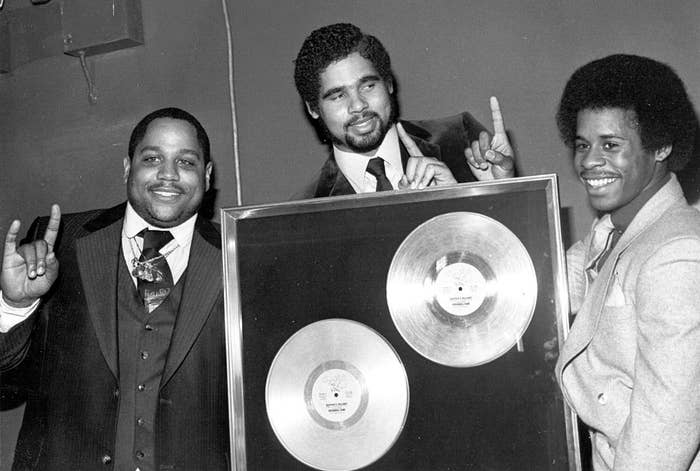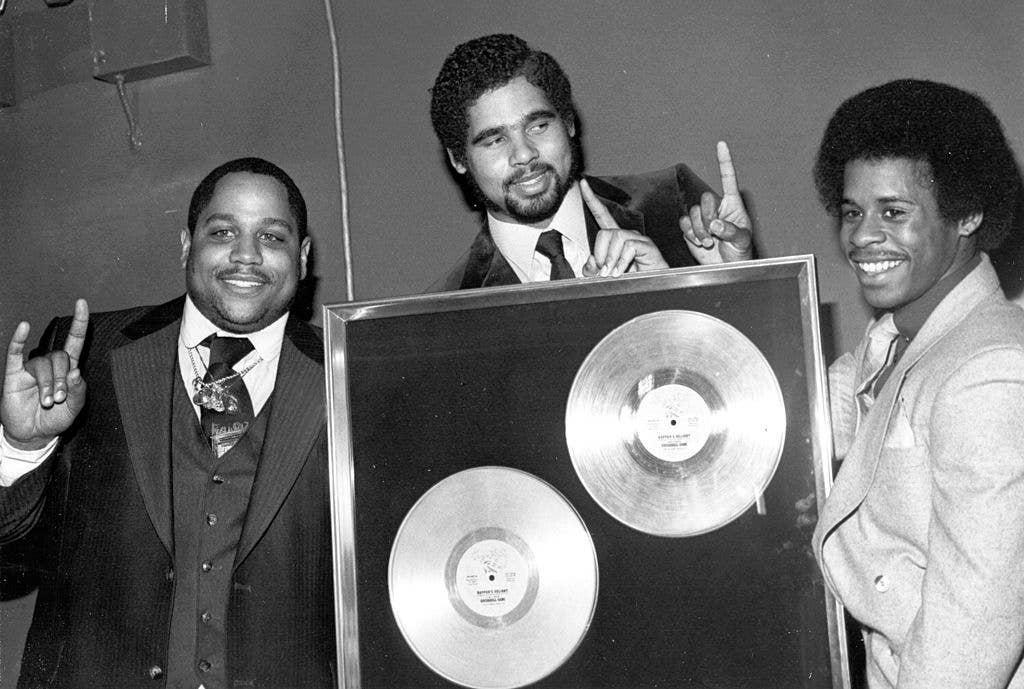
XXL has published the digital preview of the magazine's annual Freshman Class issue, which features nine rappers and a singer on its cover. One of the honorees is Kidd Kidd, a rapper who was featured on a platinum-selling single from Lil Wayne's Tha Carter III, which dropped in 2008 — seven years ago. If Kidd Kidd is a freshman in 2015, that means he was a second-grader in 2008. So, Kidd Kidd is on track to "graduate" from ASCAP in 2018. Congratulations!
Another one of XXL's freshman honorees is "Cigarette Song" singer Raury, who is photographed on the magazine's cover (and above) wearing his on-brand islander hat and a t-shirt that reads "industry plant" in bright green across his chest. That latter flourish is an allusion to standing speculation that Raury is a faux-indie Frankenstein of old Anthropologie catalogs and Monkey D. Luffy gifs, engineered by savvy A&Rs who (ostensibly) have advised him to wear that silly-ass hat at all times.
Is Raury an industry plant?
It's tricky to precisely define the merits of that accusation. In general, "industry plant" is a pithy derogative that we (haters) wield to imply that a rapper or singer is an upstart fraud, a record label puppet, a focus group-tested vessel of creativity so-called. Any musician with a hazy or straight-up fabricated origin story — a recent example is Post Malone — is to be regarded with such suspicion.
(The illustrative contrast to any alleged industry plant would be, say, Meek Mill, French Montana, or Nicki Minaj, three rappers whose respective, long-term grinds are extensively documented via YouTube, DatPiff, etc.)
Members of the Sugar Hill Gang were, arguably, hip-hop's original industry plants. Record producer Sylvia Robinson assembled New Jersey rappers Master Gee, Big Bank Hank, and Wonder Mike out of nowhere in 1979 to record "Rapper's Delight," in which Hank plagiarized his three long-ass verses from Grandmaster Caz of the Bronx. (Whenever there's some huge, manic appropriation debate roiling the Internet, duly remind yourself that hip-hop's very first hit single is three grown men rapping stolen, uncredited lyrics over a disco sample (ahem, "interpolation") that no one bothered to clear or credit to Nile Rodgers. That's that real hip-hop.)
Just like Pebbles planted Chilli into TLC to replace founding member Crystal Jones at the request of L.A. Reid — these things happen. Especially in pop music and R&B, where mixtape output and regional fan support are less critical in the narrative of a musicians discovery and ascent. "Industry plant" is a term that only hip-hop culture could've bothered to come up with. August Alsina, who was a XXL freshman last year, is a music industry plant, and I'm pretty sure no one cares. Taylor Swift is the greatest industry plant of all time.
Raury, a solo artist, is one of the more perplexing cases in recent memory. Raury is from Atlanta. He released his debut EP through LoveRenaissance (whatever that is) in August, and then — somehow simultaneously, before Indigo Child had really popped off — Raury signed to Columbia Records, home to Beyoncé, Pharrell, and One Direction. Mind you, Raury wasn't a popular X Factor contestant or an indie YouTube sensation, or a meme. He's just some kid with a hat. On the one hand, it's pretty glib to dismiss the sum of a musician's creativity, ambition, and ingenuity as inauthentic and unworthy of, well, anything. On the other hand, seriously: where the fuck did this kid come from????
Far be it for me to appoint myself captain of the NYPD's Sad Boy Authenticity Division.
In general, hip-hop's most cynical sleuths have yet to draft or adhere to a single, definitive differentiation between industry plants and "real" artists. One three-year old KanyeToThe forum thread is a 19-page brainstorm of accusations that A$AP Rocky, Drake, Logic, Trinidad James, and even Beyoncé are all industry plants in their own, respective ways. Paranoid rap forums are especially convinced that Chance The Rapper is an industry plant, despite the fact that Chance is a unsigned rapper that prominent radio DJs have proudly admitted to having never spun or even heard in their lives.
Meanwhile, Father's fanbase appears to be the 300 people who write about music for the Internet and the fact that every one of these tastemakers and critics wants to be cuddle buddies with Awful Records is pretty apparently untoward. Post Malone has more blog posts written about him than he has songs to his credit. Suspicious, no?

